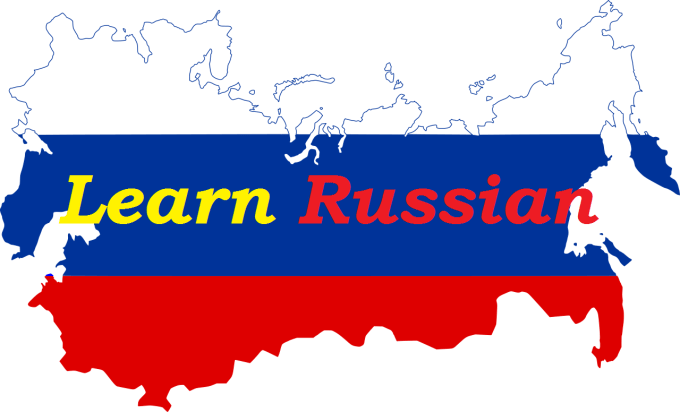Russian language is the official language of Russia, but it's also spoken in other Eastern European countries, such as Belarus, the Ukraine, and other countries home to large populations of ethnic Russians.
Russian is a Slavic language, and therefore it shares similarities with other Slavic languages – students of Russian will find similar words in Slavic languages, including Polish and Croatian, throughout the Eastern European region. As a Slavic language, Russian belongs to the Indo-European language tree.
Usefulness of the Russian Language
Russian is a useful language for those whose career paths lead them to Eastern Europe – not only is it spoken by the greatest number of people in the region, due to its similarities with the languages of nearby countries, it makes learning other Slavic languages easier. The traveler will also find knowing a few Russian phrases useful. Though English is widely spoken as a second language in Russia and beyond, its prevalence diminishes in the outskirts of large cities or in locations where tourism numbers are low. A third reason learning Russian language is useful is that Russian is a literary language. Its writers and poets are among the best in the world, and reading Dostoevsky or Chekhov in the original Russian expands the reader's appreciation for its richness and nuance.
Russian Alphabet
What can make learning Russian difficult is the Cyrillic alphabet, which consists of 33 letters. Many of these letters look nothing like Latin letters, and some letters represent sounds not found in English. On the other hand, some letters and sounds are analogous to those found in English. Mastering the Cyrillic alphabet, however, has its own benefits. Travelers who can read the Russian alphabet, even if they don't know what the words mean, will have an easier time getting around in Russian cities. One stumbling block that Cyrillic alphabet learners encounter is the need to use this alphabet when they type. The Russian keyboard is different than the American one, though word processing programs can make the conversion using a Latin-letter keyboard. For lengthy or complex tasks, it may be most beneficial to invest in a Russian alphabet keyboard.
Russian Language History
Modern Russian's ancestral languages are Old Church Slavonic and Old East Slavonic, which was used by Russia's predecessor, Kievan Rus. The decline of Kievan Rus and the ascension of the Grand Duchy of Moscow encouraged the language to develop. During the time of Peter the Great, official reforms changed the language even further. Due to Peter the Great's efforts to westernize Russia, foreign words were introduced into Russian at a more rapid rate. The upper classes spoke French, and Russian was relegated to the peasants. Russification policies throughout the Russian Empire and during Soviet times expanded Russian language's use in the region. In some cases, the national language was outlawed and replaced by Russian. Russian classes were required in schools. With the dismantling of the USSR and the achievement of independence for countries under its umbrella, the use of Russian became anathema to people in countries such as Lithuania. This attitude is shifting as a new generation takes the lead in business, politics, education, and industry.
Russian Language in Literature
The role of Russian language in the country's literature has an interesting history. French used to be the language of the Russian courts of the Russian Empire, and therefore of the country's literature. Alexander Pushkin, known as the father of Russian literature, changed that when he began composing and distributing his poetry in Russian. Generations of Russian writers have followed Pushkin's lead, often paying homage to him in their works. Today, Russian literature can easily be found in translation, and many of its masterpieces have been made into films.
Learning Russian Language
The best way to learn Russian is, of course, by complete immersion. Given that this technique is often the least practical, those who want to learn Russian will find other educational outlets available. Larger universities often offer at least beginner Russian courses, though many, many valuable language-learning venues exist online, some with free lessons. Practicing Russian in a realistic setting often proves to be more difficult than finding beginner classes. Making friends with a native Russian or someone who speaks the language fluently is of extreme benefit. Students who attend university should look for study abroad opportunities in Russia. Those who have access to neither may be able to find pen pal opportunities or online communities dedicating to sharing language knowledge and practicing written language.
Russian Language Today
Russian, though still one of the less popular languages for English speakers to learn, is becoming less esoteric and more mainstream by the year. Russians are avid internet and social media users, their pop culture and entertainment industry is rapidly growing, and businesses continue to branch into this vast country. Russian has adapted to include words for modern concepts and technologies, though Russian speakers maintain its spirit through their tradition of using common expressions, quoting Pushkin and other poets, and enjoying standard Russian jokes.

